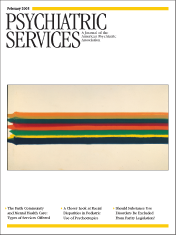The Imam's Role in Meeting the Counseling Needs of Muslim Communities in the United States
Abstract
OBJECTIVE: Muslims are one of the most rapidly growing minority groups in the United States and have experienced increased stress since September 11, 2001. The purpose of this study was to elucidate the roles of imams, Islamic clergy, in meeting the counseling needs of their communities. METHODS: An anonymous self-report questionnaire was mailed to 730 mosques across the United States. RESULTS: Sixty-two responses were received from a diverse group of imams, few of whom had received formal counseling training. Imams reported that their congregants came to them most often for religious or spiritual guidance and relationship or marital concerns. Imams reported that since September 11, 2001, there has been an increased need to counsel persons for discrimination. An increased need to counsel persons who were discriminated against was reported by all imams with congregations in which a majority are Arab American, 60 percent of imams with congregations in which a majority are South Asian American, and 50 percent of imams with congregations in which a majority are African American. CONCLUSIONS: Although imams have little formal training in counseling, they are asked to help congregants who come to them with mental health and social service issues. Imams need more support from mental health professionals to fulfill a potentially vital role in improving access to services for minority Muslim communities in which there currently appear to be unmet psychosocial needs.



